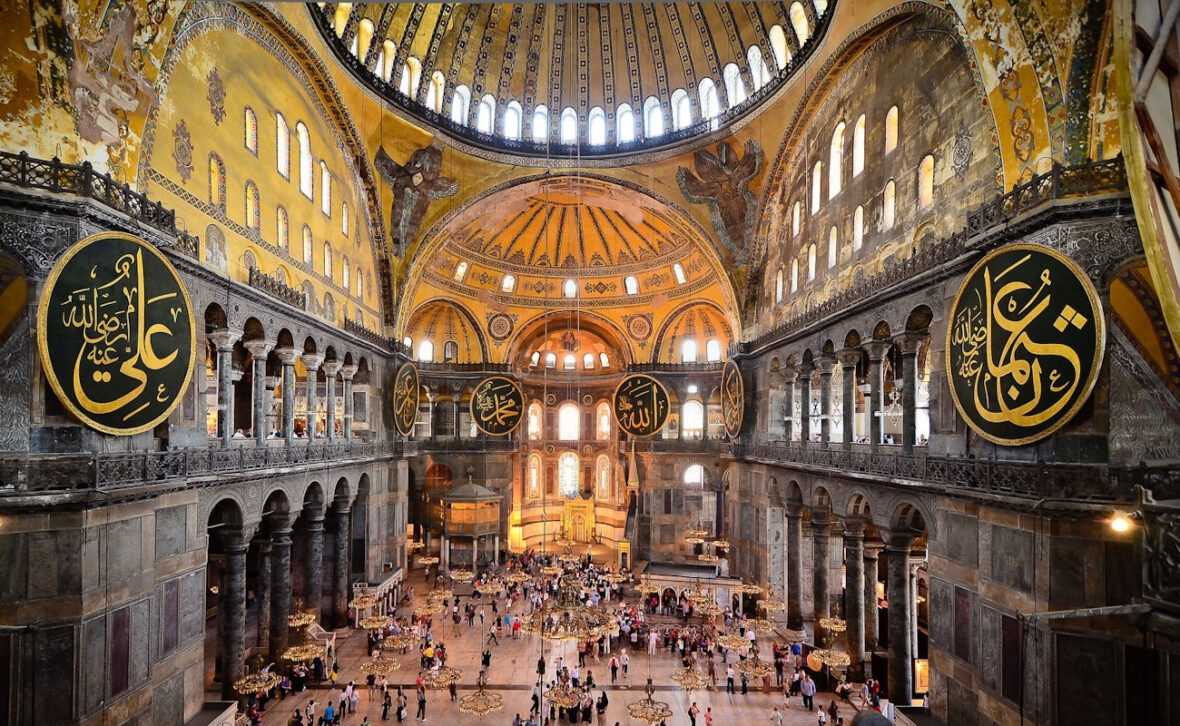
The Religious Demographic Structure of Türkiye
The religious demographic structure of Türkiye is notably characterised by a rich diversity of spiritual practices and beliefs. This variety reflects the country’s complex history and cultural influences, showcasing a wide array of faiths that coexist within its borders.
Despite the official secular status of the state, numerous surveys consistently indicate that Islam is the predominant religion in Türkiye. The extent of Islamic faith in Türkiye is a contentious issue, with published data on the proportion of the population adhering to Islam varying considerably. The official statistics may be misleading due to the government’s policy of registering individuals as Muslim at birth by default. A significant proportion of the population either follows another religion or does not adhere to any religion. However, in official records, these individuals are officially classified as ‘Muslim’ unless they make a contrary claim.
These records may be subject to alteration or even erasure at the behest of the citizen, who is required to provide a valid electronic signature in order to initiate the electronic application process. According to official state statistics, the vast majority of the population, specifically 99.8%, is initially registered as Muslim. The remaining 0.2% of the population are Christians and adherents of other officially recognised religions, including Judaism. According to a 2025 report from the Pew Research Center, 95% of the Turkish population identified as Muslim. A considerable proportion of these individuals are non-observant Muslims.
Secular Country
Türkiye has officially been a secular country since the 1924 constitution was amended in 1928. This was subsequently reinforced and solidified through the broader implementation of laicism by the founder, Atatürk, during the mid-1930s, as part of the Republican reforms. In the context of the nation, a series of stringent regulations pertaining to religious practices were implemented, encompassing a prohibition on the wearing of Islamic attire. The rights of Armenian Apostolic, Greek Orthodox, and Jewish citizens were recognised under the Treaty of Lausanne.
The 1980s witnessed the emergence of a contentious discourse surrounding the role of religion in the state. Influential religious factions challenged the complete secularisation called for by Kemalism, while Islamic practices experienced a substantial revival. In the early 2000s, Islamic groups increasingly challenged the concept of a secular state, particularly following the rise to power of the Islamist-rooted Justice and Development Party (AKP) in 2002.
Türkiye has historically been a country with a religiously diverse population. On the eve of World War I, the precursor of contemporary Türkiye, the Ottoman Empire, comprised 20% non-Muslim citizens. The non-Muslim population underwent a substantial decline following the late Ottoman genocides, population exchange between Greece and Türkiye, and emigration of Jews and Christians.
Despite the state’s official secular character, since 1982 it has been compulsory for all primary and secondary schools to include religious studies in their curriculum. The content of these studies is primarily focused on Sunni Islam. The extent to which other religions are covered is a matter for the school. These policies have been met with controversy and criticism by both the foreign media and the Turkish public. Conversely, the high school curriculum incorporates religious studies through a philosophy (Felsefe) course, providing a more comprehensive overview of diverse religious traditions. The country also has public Islamic schools, known as İmam Hatip schools, which came to prominence in the 1950s.
European Union
In the eventuality of Türkiye’s application to join the European Union, certain member states expressed reservations regarding the compatibility of a Muslim country with the union. Turkish politicians have accused the country’s EU opponents of favouring a “Christian club”.
Religious Statistics
The following table presents the results of the TFRS study (2023, figure 1) on the subject of belief in God.
1. God exists (94.3%)
2. In the context of the Turkish general population, the proportion of individuals who adhere to the belief that a deity exists is 5.70%. This data is presented in Chart 5 of the 2023 TFRS study, which focuses on the distribution of belief and religiosity typologies. The predominant religious affiliation identified is that of the mainstream religious category, constituting 40.2% of the Turkish population.
1. Pious Muslim (30.6%)
2. The proportion of Muslims who are not affiliated with any particular religion is 22.2%.
3. Secular non-believer (6.00%)
Türkiye does not conduct censuses regarding religious denominations. Despite the fact that 99.8% of the population were initially registered as Muslims, academic research and polls have yielded divergent results regarding the percentage of Muslims, with some suggesting a figure lower than 90%. It is customary for non-Muslim ethnic groups to constitute approximately 0.2% of the nation’s population.
In a poll conducted by Sabancı University in 2006, 98.3% of Turks revealed they were Muslim. The majority of Muslims in Türkiye are Sunni, constituting approximately 85–90% of the total Muslim population. The remaining 10% of Muslims are comprised of Shia-Aleviler (also known as Alevis, Alawites, and Ja’faris), who collectively represent a significant minority within Türkiye’s religious landscape. A small but significant minority of Shia Muslims in Türkiye can be identified as having an Ismaili heritage and affiliation. The non-Muslim religious population is composed of Christians (Oriental Orthodoxy, Greek Orthodox and Armenian Apostolic) and Jews (Sephardi), constituting approximately 0.2% of the total.
